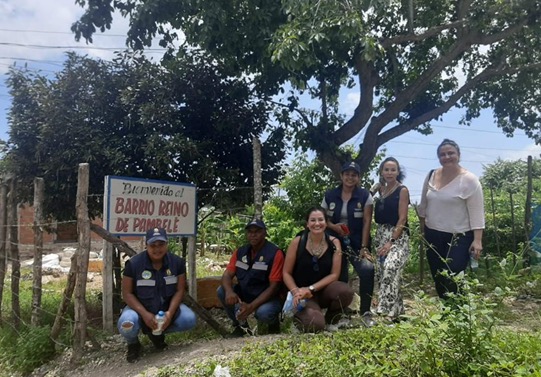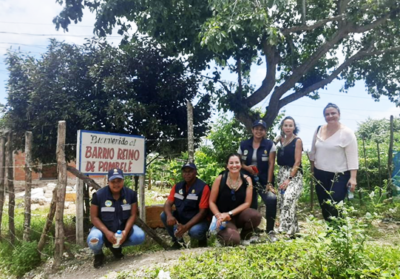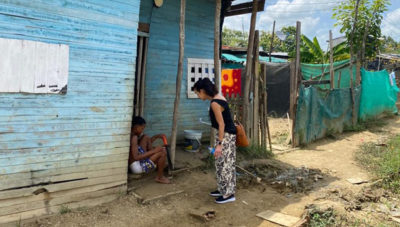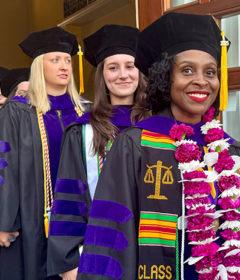Law Professor Nagle Works to Fight Exploitation of Migrants in Colombia


As part of a critical project sponsored jointly by the American Bar Association Rule of Law Initiative (ROLI) and USAID, Stetson Law Professor Luz Nagle spent part of her summer sharing her deep expertise about human trafficking and how to stop it in Colombia.
The USAID project Conectando Caminos por los Derechos/Connecting Paths for Human Rights (CCD) brought Nagle to Bogota and Cartagena to share recommendations and guidelines to help local, regional, and national officials and organizations combat human trafficking, a rampant problem globally that is particularly devastating in the region.
CCD is an entity that supports the transition between humanitarian aid and medium and long-term development for Venezuelan migrants, Colombian returnees and host communities in Colombia. It aims to foster cohesion and citizen security and ensure the rights of all members of society to live free from all forms of crime and violence, regardless of their legal status within the country.
Battling the scourge of exploitation
During her travels, Nagle met with some of the country’s most vulnerable populations and spoke to numerous media outlets about how government leaders can directly reduce the incidences of the human rights violations most common in Colombia as well as related crimes. These include labor and sexual exploitation, human trafficking, disappearance of individuals and gender-based violence.
The populations that are most vulnerable to crimes of this nature include women, children and members of the LGBTQ+ community.
An international law expert who has written and spoken extensively on how to prevent human trafficking, Nagle has worked with government agencies and non-government organizations alike to develop effective strategies for promoting human rights.

In Colombia, such entities included Talitha Qum, a Cartagena nonprofit that helps girls and adolescents avoid trafficking and abuse, Corporacion Caribe Afirmativo, an entity that advocates for LGBTQ+ rights, the city of Cartagena government, and El Fiscal, the Colombia attorney general’s office.
Throughout her visit, she advised CCD and other organizations on how to sharpen their strategies for combatting trafficking in persons (TiP), participated in meetings with organizations that are fighting human trafficking in their area, gave a keynote address at an event on human trafficking and spoke to members of the media about the issue.
Sharing insights on human trafficking
At the core of the problem, she has said, is corruption, which she calls “the grease that facilitates human trafficking” and should be looked at as part of investigations into such offenses. Because it is so profitable, money laundering is also often linked to human trafficking, Nagle said, which is why banks should use greater scrutiny to look for signs of it.
“It is the obligation of all institutions to know their customers and follow the money to determine if they are involved in human trafficking and money laundering,” Nagle said during a panel discussion. “We do it for trafficking in drugs and we should do it to protect human beings.”
She added that any money laundered as part of a human trafficking operation should be confiscated and used to help victims of the crime.
Learn more about Professor Nagle, including recent writings.
-Kate Bradshaw
Stetson University College of Law
727-430-1580


